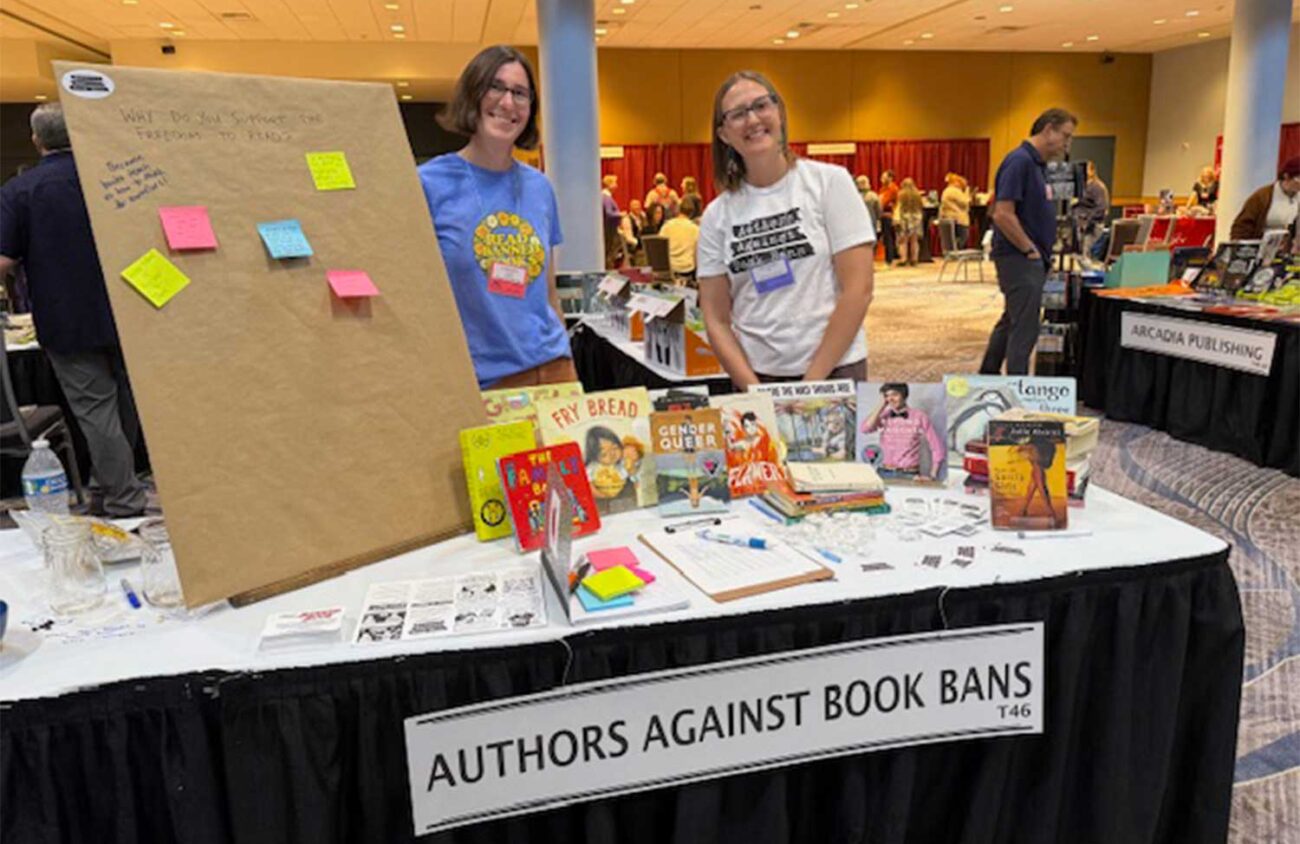Should Adolph Hitler’s book Mein Kampf be banned from libraries in Oregon?
That is the question members of Authors Against Book Bans asked visitors to our table at the Pacific Northwest Booksellers Association (PNBA) show in Spokane at the end of September.
Likewise, it was the question a library in Oregon faced in 2024 when a patron complained about Hitler’s plan for domination being on the shelf.
How did the people respond? And what about the library staff?
Think about this one for a moment — then read on to find out.
The Banned Books question is especially timely now. Oct. 5 through 11 is Banned Books Week nationwide, and, not entirely coincidentally, the state library’s Intellectual Freedom Clearinghouse recently released its annual report on book challenges in Oregon.
For those of us who value the freedom to read, there is good news. The clearinghouse reports 71 challenges, 50 of them “official,” in 2024-2025, a reduction of 21 percent from the previous year. (“Official” means the challenge was more than a casual complaint about a book.)
As for individual items targeted, 68 were challenged — fewer than half the number from the previous year.

Furthermore, in the overwhelming majority of cases (84 percent), the material — usually a book — was retained. Only 13 percent of the time was it restricted or removed, and the remaining three percent are under review.
The “challenge” numbers include vandalism and theft in instances when staff suspected the issue was the material’s content. Examples are a Christian magazine in one library that was torn in two, and graffiti scrawled in a book called Seeing Gender that read: Gay=Sin.
As in previous years, most of the challenged books are aimed at young adults and acknowledge sexuality. Frequently challenged titles nationwide that also appear on the Oregon list are Flamer (by Mike Curato), Heartstopper (by Alice Oseman) and Gender Queer (by Maia Kobabe).
Flamer and Gender Queer — both challenged in a school library — were, in fact, removed. Heartstopper, challenged in a public library, was retained.
As is usually true of good news, these numbers come with caveats. For example, challenges are not always reported, so this is undoubtedly an undercount. Also, while the incidents seem to be down from 2023-2024, they are still high by historical standards, meaning the period since 1988 when American libraries first tracked the stats.
Finally, challenges do not include harassment or intimidation of library staff. When a book club at one public library, for example, chose to read Gender Queer, social media blew up with accusations and insults.
There’s a happy ending to that one, though. When the book club met at last, six times the usual census showed up, and discussion was mostly civil.
And what about Mein Kampf?
The PNBA show attracts mainly booksellers, publishers and authors. Unsurprisingly, we authors staffing the Authors Against Book Bans table got a lot of love and gratitude. (Hey, you’re welcome!) While the Mein Kampf question caused initial head-scratching, the vote in the end was 28-1 against banning it.
“We have to be aware of history,” one author said, “so we don’t relive it, right?”
Decision makers at the Oregon public library who faced the question last year came to the same conclusion and retained the book.
On the other hand — two books removed from a school display in 2024-25 are He is He and She is She by Ryan and Bethany Bomberger, which, according to the flaps, opine that God’s intentional designation of biological boys and girls must not be messed with.
Ban them? Retain them? What do you think?
